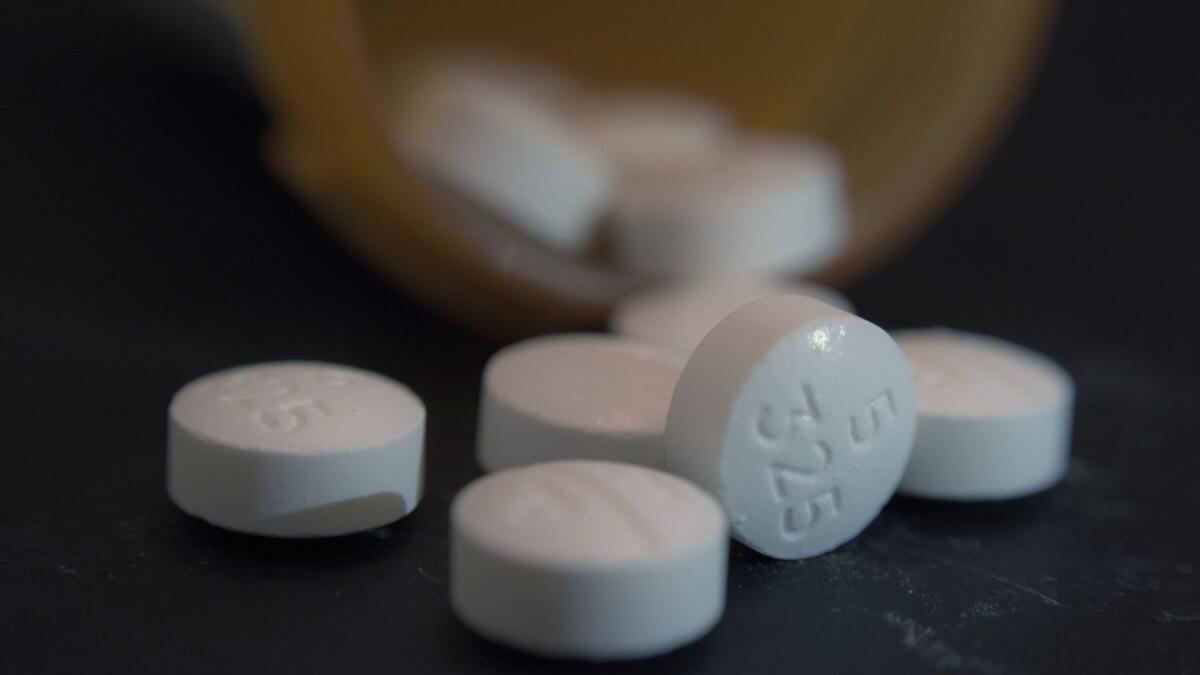Hospitals are fed up with drug companies, so they’re starting their own

A group of major American hospitals, battered by price hikes on old drugs and long-lasting shortages of crucial medicines, has launched a not-for-profit generic drug company, Civica Rx, to take some control over the drug supply.
Backed by seven large health systems and three philanthropic groups, the new venture will be led by an industry insider who refuses to draw a salary. The company will focus initially on establishing price transparency and stable supplies for 14 generic drugs used in hospitals, without pressure from shareholders to issue dividends or push up a stock price.
“We’re trying to do the right thing — create a first-of-its-kind societal asset with one mission: to make sure essential generic medicines are affordable and available to everyone,” said Dan Liljenquist, chairman of Civica Rx and chief strategy officer at Intermountain Healthcare in Utah.
The consortium, which includes health systems such as the Mayo Clinic, Providence St. Joseph Health and HCA Healthcare, collectively represents about 500 hospitals, including Mission Hospital in Mission Viejo, St. Joseph Hospital in Orange and Riverside Community Hospital.
Liljenquist said the initial governing members have committed $100 million to the effort. The business model will ultimately rely on the long-term contracts that member healthcare organizations agree to — a commitment to buy a fixed portion of their drug volume from Civica.
Civica did not disclose which drugs it’s focusing on for competitive reasons, but Elie Bahou, chief pharmacy officer of Providence St. Joseph Health, said the criteria include drugs that underwent price increases of 50% or more between 2014 and 2016 and essential medicines that were on national shortage lists.
A 2016 survey commissioned by hospital lobbying groups found that a third of hospital administrators reported that higher drug prices had a “severe” effect on their ability to manage their budgets.
Several hospital leaders said shortages and price leaps on old drugs are managed on a near-daily basis. The cost isn’t just the price of a drug but also the clinical and staff time spent tracking the supply, looking for alternatives and changing protocols. For hospital systems that span multiple states, the shortage problems are often hyperlocal, too — in one state, morphine might be available while fentanyl is in shortage, while in another, the reverse could be true. So the one solution may not even work systemwide.
“There’s a whiteboard at every one of our pharmacies, and there are 10 to 20 drugs on the whiteboard and a number — that’s the supply they have on hand. And depending on what that number is, they’ll strategize: ‘What are we going to do,’ ” said Bob Ripley, chief pharmacy officer of Trinity Health, one of the health systems in the consortium.
Civica Rx’s first drug could hit the market in late 2019 or early 2020, Bahou said. The company has committed to a transparent pricing model, without secret rebates that are common throughout the pharmaceutical industry.
Martin VanTrieste, chief executive of Civica, worked in the traditional pharmaceutical industry for decades — most recently at biotech giant Amgen — and said he came out of retirement to take on the role with two requirements: He’d work without pay, and the company had to stay focused on patients. The question of how big the company might grow, he said, depends on how the market reacts.
“We want the marketplace to take care of itself and work, so if the entrance of Civica with 14 drugs — and the threat we can do more, pretty quickly — makes the marketplace work better, probably we don’t grow much bigger than that,” VanTrieste said. “But if the marketplace is broken and can’t be fixed by adding just 14 drugs,” the company could expand much more.
There are risks. Civica’s leaders have discussed the possibility that other companies that make the generic drugs will temporarily cut their prices in an effort to maintain market share. But Civica leaders say the model of guaranteeing a steady supply at a fair, transparent price will be attractive to hospitals. Since the effort was first outlined in January, health organizations that represent a third of the nation’s hospitals have expressed interest.
“The risk of doing nothing is that we’ll continue with the same price escalations and shortages we’ve had,” said Dr. Amy Compton-Phillips, chief clinical officer of Providence St. Joseph Health. “The risk of doing nothing to me seems higher than actually trying creative solutions to solve the problem.”
Johnson writes for the Washington Post. Times staff writer Aurora Percannella contributed to this report.
UPDATES:
3:35 p.m.: This article was updated to name Southern California hospitals represented by the consortium and to add additional comment from Bahou.
This article was originally published at 7:30 a.m.
More to Read
Inside the business of entertainment
The Wide Shot brings you news, analysis and insights on everything from streaming wars to production — and what it all means for the future.
You may occasionally receive promotional content from the Los Angeles Times.










